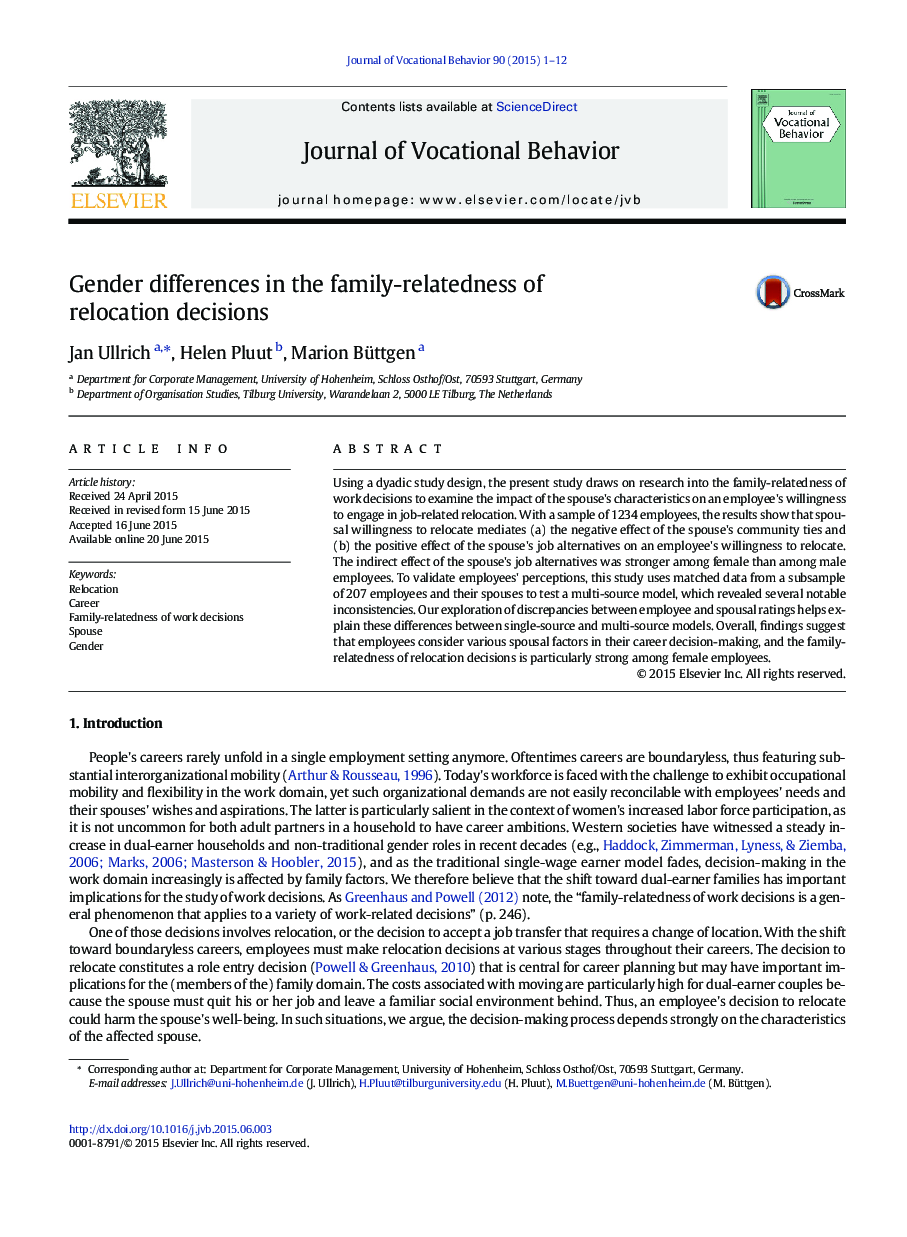| کد مقاله | کد نشریه | سال انتشار | مقاله انگلیسی | نسخه تمام متن |
|---|---|---|---|---|
| 886713 | 1471809 | 2015 | 12 صفحه PDF | دانلود رایگان |
• We propose and test a moderated mediation model of relocation willingness.
• Spouse's job alternatives and community ties influence spouse willingness.
• Spouse willingness mediates between spousal factors and employee willingness.
• Results are supplemented with multi-source analysis using spousal ratings.
• Women score higher on the family-relatedness of relocation decisions.
Using a dyadic study design, the present study draws on research into the family-relatedness of work decisions to examine the impact of the spouse's characteristics on an employee's willingness to engage in job-related relocation. With a sample of 1234 employees, the results show that spousal willingness to relocate mediates (a) the negative effect of the spouse's community ties and (b) the positive effect of the spouse's job alternatives on an employee's willingness to relocate. The indirect effect of the spouse's job alternatives was stronger among female than among male employees. To validate employees' perceptions, this study uses matched data from a subsample of 207 employees and their spouses to test a multi-source model, which revealed several notable inconsistencies. Our exploration of discrepancies between employee and spousal ratings helps explain these differences between single-source and multi-source models. Overall, findings suggest that employees consider various spousal factors in their career decision-making, and the family-relatedness of relocation decisions is particularly strong among female employees.
Journal: Journal of Vocational Behavior - Volume 90, October 2015, Pages 1–12
